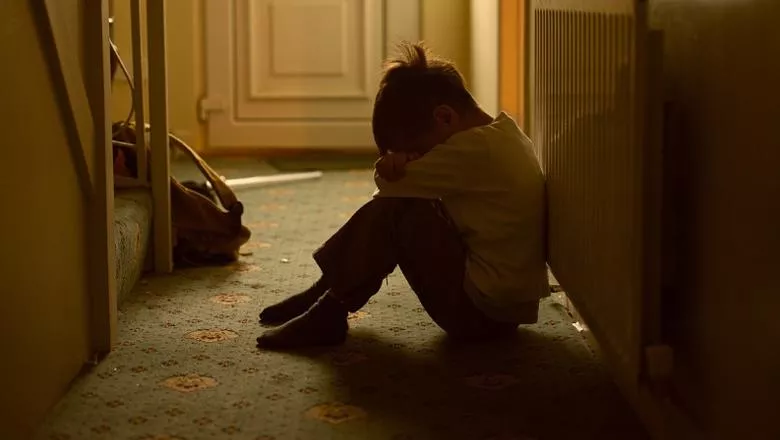We foresee a toxic situation for many children and young people, placing them at a dramatically increased risk of experiencing violence and abuse, with potentially disastrous effects on their mental health.
Dr Sian Oram from the Institute of Psychiatry, Psychology & Neuroscience (IoPPN) King’s College London and Director of the Violence Abuse and Mental Health Network
26 June 2020
New study on children and young people at risk of violence and abuse during COVID-19
Researchers from King’s College London have joined forces with Survivors' Voices, the Violence Abuse and Mental Health Network, and The McPin Foundation to launch a new project to understand how best to identify and support ‘off-radar’ children and young people during and after the COVID-19 pandemic.

For hundreds of thousands of children and young people, home is not a safe place. With the COVID-19 pandemic requiring social distancing measures and continued restrictions on schools, children and young people are at a higher risk of being isolated with abusive family members and cut-off from sources of support. Many are ‘off-radar’ and unknown to services that provide help.
In response, Survivors' Voices, the Violence Abuse and Mental Health Network and The McPin Foundation are collaborating on a survivor-led project which will involve an anonymous survey of survivors of childhood abuse and the professionals who work with this group. Recommendations will be published later in the year.
The research builds on an earlier rapid consultation of survivors of childhood abuse, the findings of which were published as an interim report: Supporting 'off-radar' children and young people who are at risk of violence/abuse in their household
The survey for the new study can be accessed here and will be available until 10th July 2020.
Dr Oram continued: 'Harnessing the wisdom and experience of those who have lived through violence and abuse is vital to understanding how we can best support these children and young people, and what actions should be taken by government, schools, local authorities, youth and community organisations, charities, and communities.'
Describing the importance of the research, study co-investigator and survivor researcher Jane Chevous who is Founding Director of Survivors Voices said: ‘We all want to keep our children safe and happy. That is why families all over the UK have been learning to home school, supporting the lockdown, and flattening the curve. But what about children for whom home is not a safe place? We know from research with adult survivors that as many as one in seven children experiencing abuse, never tell anyone at the time. Imagine what lockdown is like for them.’
Reflecting on her own experiences of childhood abuse, Jane Chevous continued: ‘School was my safe place, with adults who I knew wouldn't harm me. I remember one teacher, who read my poems and encouraged me to write stories. She could see that I was scared and unhappy, although I couldn't find the words to tell her why at the time. Her kindness and caring showed me that I mattered, that there was hope.'
Our interim report has a call to action to government and services like schools to take urgent steps to help children in a situation like mine. But it also suggests practical things we can all do, to help children trapped in abusive situations. We can notice the children in our neighbourhood, our circle of family and friends. We can find ways to show them we care. We can let them know they matter, that there is hope.
Jane Chevous, study co-investigator, survivor researcher and Founding Director of Survivors Voices
She continued: 'They might not tell you what is wrong, but you can still make a difference. I can't imagine how I would have got through my teenage years without that teacher. Please join us in being there for children in unsafe homes and helping them to hold on to hope.’
The study is supported by the King’s COVID Appeal Fund and the Economic and Social Research Council Impact Acceleration Account at King’s College London. The Violence Abuse and Mental Health Network is funded by UKRI.
Resources for people affected by violence and abuse
Samaritans: Free to call service 24 hours a day, call them on 116 123.
NAPAC: NAPAC supports people who have experienced violence and abuse in childhood. Their support line is open 10am-4pm on Mondays, Wednesdays, and Fridays, and from 2pm-9pm on Tuesdays and Thursdays on 0808 801 0331. They also offer support by email: support@napac.org.uk
Childline: Childline is there to help anyone under 19 in the UK with any issue they are going through. Whether it is something big or small, their trained counsellors are there to support you. You can call Childline for free anytime, day or night, on 0800 1111 or access support and advice via their website: https://www.childline.org.uk/
Survivors Voices: Information about further sources of support can be found on the Survivors Voices website at https://www.survivorsvoices.org/support/
Contact: For interviews or any further media information, please contact: Franca Davenport, Interim Senior Press Officer, IoPPN: franca.davenport@kcl.ac.uk / +44 7718 697176

